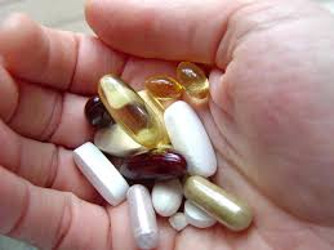Nutritional Resources
Not everyone recognize or believes in the role that nutritional deficiencies may play in the experience of EDS and HSD, but I have personal first hand experience with some so I do. I was lucky to have both Vitamin C and magnesium recommended when I was first diagnosed, and both helped me greatly recover post onset-cascade of 2012. (I’m not cured by any stretch, but I can walk pretty well with just a cane again, when I couldn’t at all for a few months.)
Further, some people swear by vitamin and other supplements, while others do not. Some don’t seem to benefit much or at all from oral supplements. EDS looks an awful lot like scurvy when you think about it despite eating enough fruits and vegetables. My guess is we have poor absorption in our stretchy weak guts lending to this, in addition to the genetic collagen defects they’ve found behind all but hEDS yet.

I’m guessing that most positive nutritional supplementation experiences are also shut down as they pose a threat to Big Pharma, since if people could help make themselves well without medication, then who can they sell medication to? Politics aside, I’m not alone in this experience.
Vitamin C helps to lay in new collagen, and the more you have the better we’re finding, faulty or not. However, those who are sensitive or allergic to corn will react to the most common form: ascorbic acid, which is corn based. Alternative forms include: Sago palm based, camu camu, rose hips, tart cherry juice and moringa leaves. As well as Vitamin C shots as Madora found. And magnesium helps build smooth muscle fiber. (Think “inner tubes” – GI tract, vasculature.) And some get kidney stones if they even so much as look at ascorbic acid (cheaper Vitamin C). So proceed carefully with oral forms.
And additional water will just go through us until we have sufficient salt and potassium as many of us need for highly co-occurring POTS, which won’t “stick” and work either, without sufficient magnesium. The following links help explain how this can be.
That said, NOTHING IS A PANACEA. That is, no single solution will work for everyone, nor work the same. Results and mileage will ALWAYS VERY FOR ALMOST INFINITE REASONS. Allergies, sensitivities, metabolism, ability to absorb through your gut (which can ebb and flow), skin and ability to detox through liver and skin, dysbiosis if have any, and more. Like Dr. Afrin says all the time, it’s trial and error – aside from muscle testing which not all practice or believe in, there’s truly no other way to find out or know what works for you. Anyone can react to literally ANY thing. No matter how seemingly benign.
Nothing here is to be construed as medical advice. Please talk to your doctors or other health care providers always. And treat yourself based on lab results and clinical observations, not 23andMe reports in random sandboxes. Not all genetic variants cause problems, nor express fully. For real. (Treat the patient, not the SNP, always.) Updated October 25, 2025
- Diet and Supplement Guidelines for EDS – Heidi Collins, MD
- Magnesium and Ehlers-Danlos (both parts) – Heidi Collins, MD via TEDS again 2024
- Nutritional Approaches to Treating GI Concerns – Heidi Collins, MD via TEDS 2020
- Trove of slide sets from Dr. Heidi Collins (Google drive)
- Effect of vitamin C and its derivatives on collagen synthesis and cross-linking by normal human fibroblasts Boyera, Galey Bernard 1998
- Mast Cell and Histamine Safe forms of Magnesium: What to know when you have Mast Cell Activation or Histamine Intolerance via Mast Cell 360 2023
- Magnesium and Connective Tissue Senni, Foucault-Bertaud et al via John Libbey Eurotext March 2003
- Nine types of magnesium explained by Dr. Eddy Betterman
- When Magnesium Makes Me Worse – Carolyn Dean, MD ND
- [PubMed] A novel therapeutic strategy for Ehlers-Danlos syndrome based on nutritional supplements – 2005 article on a nutritional approach to EDS
- Sandy Simmons Connective Tissue Disorders site – has lots of good nutritional support info for all forms of CTDs (EDS plus)
- Natural Whole Foods Vitamins (ascorbic acid is not vitamin C)
- Little known facts about oxalates and their effects on connective tissues (Sally K Norton)
- Your Tendons on Cake 2015 James Crownover, MD (avoid sugar!)
- Idiopathic Postrandial Syndrome (often confused with hypgolycemia) vai Wikipedia
- Adrenergic Postrandial Syndrome (often confused with hypoglycemia too)
- Role of vitamins D, C and E in immunology and inflammation – 2013 Shaik-Dasthaqirisaheb YB, Varvara G, et al
- The relationship between disorders of K+ and Mg+ homeostasis 1987 Solomon
- Mechanism of Hypokalemia in Magnesium Deficiency 2007 Chou-Long Huang, Elizabeth Kuo JASN
- Errors in Potassium Measurement: A Laboratory Perspective for the Clinician 2013 Asirvatham, Moses, Bjornson
- Magnesium and potassium. Inter-relationships in cardiac disorders 1986 Wills MR
- Low magnesium levels make Vitamin D ineffective – Feb 2018 Science Daily
- An introduction to cortisol by Florence Neville, health coach
- The Methylation Cycle by Heartfixer Nutrigenomics (no affiliation, just find it informative)